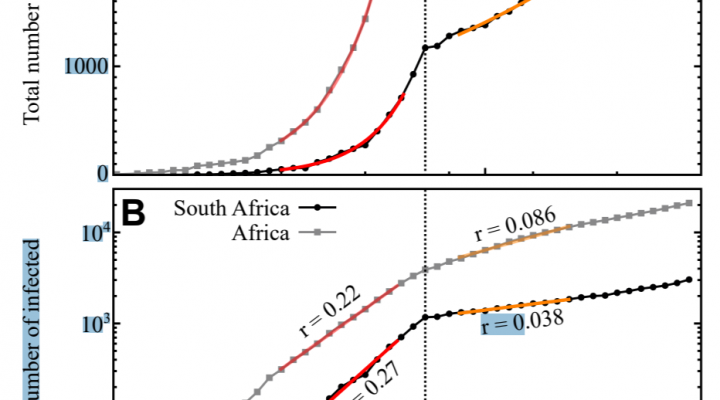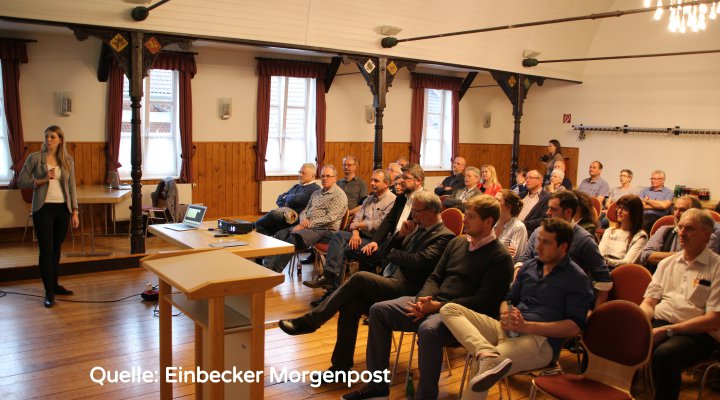Publications
Published
Lichter, J., Hosius, E., Wacker, B., & Schlüter, J. C. (2020). Der Einfluss von Offshore-Windenergie auf die EEX-Strompreise. Zeitschrift für Energiewirtschaft, 44, 85-99.
doi:10.1007/s12398-020-00276-8
Simons, J., Wacker, B., Bossert, A., & Schlüter, J. C., Verkehrsökonomische Analyse von Minibustaxiverkehren in der Metropolregion Kapstadt und der Minenstadt Rustenburg in Südafrika, Zeitschrift für Verkehrswissenschaft, 91, 1-27.
www.z-f-v.de
Wacker, B., & Schlüter, J. C. (2020). Time-continuous and time-discrete SIR models revisited: theory and applications. Advances in Difference Equations, 2020: 556.
doi:10.1186/s13662-020-02995-1
Wacker, B., Seebaß, J. V., & Schlüter, J. C. (2020). A modular framework for estimating annual averaged power output generation of wind turbines. Energy Conversion and Management, 221: 113149. doi:10.1016/j.enconman.2020.113149
Wacker, B., & Schlüter, J. C. (2020). An age- and sex-structured SIR model: Theory and an explicit-implicit numerical solution algorithm. Mathematical Biosciences and Engineering, 17, 5752-5801. doi:10.3934/mbe.2020309
Schlüter, J. C., Sörensen, L., Bossert, A., Kersting, M., Staab, W., & Wacker, B. (2021). Anticipating the impact of COVID19 and comorbidities on the South African healthcare system by agent-based simulations. Scientific Reports, 11(1), 1-9.
doi.org/10.1038/s41598-021-86580-w
Wacker, B., & Schlüter, J. C. (2021). A cubic nonlinear population growth model for single species: theory, an explicit–implicit solution algorithm and applications. Advances in Difference Equations, 2021(1), 1-29. doi:10.1186/s13662-021-03399-5
Wacker, B., & Schlüter, J. C. (2022). Qualitative analysis of two systems of nonlinear first‐order ordinary differential equations for biological systems. Mathematical Methods in the Applied Sciences, 45(8), 4597-4624. doi:10.1002/mma.8056
Wacker, B., & Schlüter, J. C. (2025). Analysis of a non-standard finite-difference-method for the classical target cell limited dynamical within-host HIV-model-Numerics and applications. Mathematical biosciences and engineering: MBE, 22(9), 2360-2390. 10.3934/mbe.2025086
Hosius, E., Seebaß, J. V., Wacker, B., & Schlüter, J. C. (2023). The impact of offshore wind energy on Northern European wholesale electricity prices. Applied Energy, 341, 120910. doi:10.1016/j.apenergy.2023.120910
Kneib, T., Schlüter, J. C., & Wacker, B. (2024). Revisiting maximum log-likelihood parameter estimation for two-parameter Weibull distributions: theory and applications. Results in Mathematics, 79(6), 224. doi:10.1007/s00025-024-02258-5
Minnich, A., Herbst, H., Herminghaus, S., Kneib, T., Wacker, B., & Schlüter, J. C. (2024). A behavioral economic perspective on demand responsive transportation. Transportation Research Interdisciplinary Perspectives, 27, 101176. doi:10.1016/j.trip.2024.101176
Inpress
Kersting, M., Bossert, A., Sörensen, L., Wacker, B., & Schlüter, J. C. (2021). Predicting effectiveness of countermeasures during the COVID-19 outbreak in South Africa using agent-based simulation. Humanities and Social Sciences Communications, 8(1), 1-15.
doi:10.1057/s41599-021-00830-w
Submitted
Wacker, B., & Schlüter, J. C. (2021). Pipeline for Annual Averaged Wind Power Output Generation Prediction of Wind Turbines Based on Large Wind Speed Data Sets and Power Curve Data. MethodsX, 8, 101499. doi:10.1016/j.mex.2021.101499
Miscellaneous
Scientific Experience
2021 to today University of Applied Sciences Merseburg
2019 to 2020 Next Generation Mobility Group, Department of Dynamics of Complex Fluids, Max Planck Institute for Dynamics und Self-Organization, Göttingen
2017 to 2018 Institute of Mathematics and Image Computing, University of Lübeck, Lübeck
2012 to 2016 Institute of Numerical and Applied Mathematics, Faculty of Mathematics and Computer Science, Georg August University of Göttingen, Göttingen
Education
M.Sc. Georg-August-University of Göttingen
PhD Georg-August-University of Göttingen
Supervised Students
3x Supervised and completed Master theses since 2017
Projects Involved
Research fields involved
Energy
Wind energy is the backbone of renewable energies in Europe. The high fluctuation of this energy source is one of the main problems to be solved. Accordingly, complementary technologies and smart power grids are promising approaches.
Applied Artificial Intelligence
Due to the large amount of data from the areas of transportation and energy, we use artificial intelligence to analyze it. New use cases for artificial intelligence are emerging in the process.
Finance
Renewable energies lead to strong fluctuations on the markets. accordingly, these have to be analyzed and understood more precisely in order to supply the economy with energy and to maintain its functionality.




